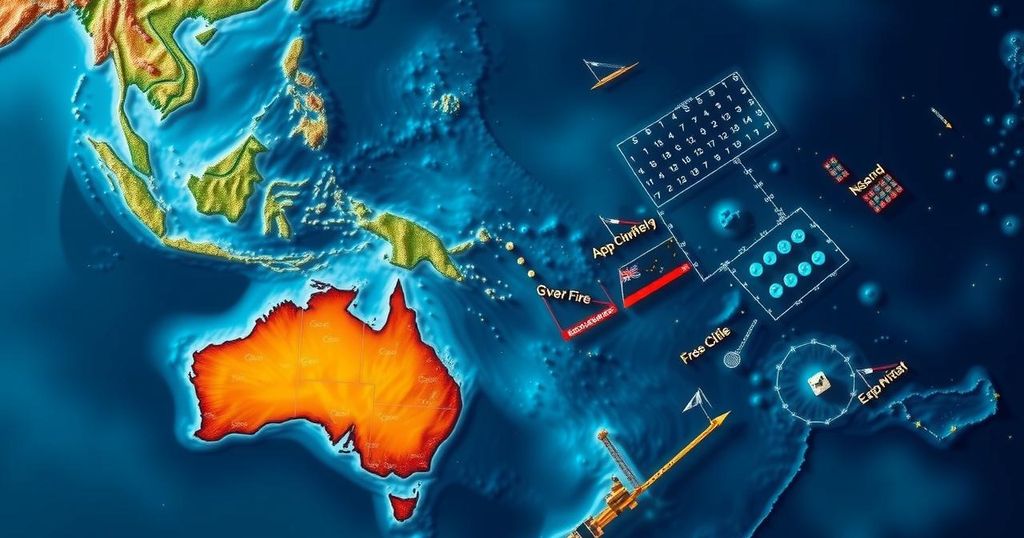Climate change
ASIA, AUSTRALIA, CHINA, CLIMATE CHANGE, CUBA, EUROPE, HAGUE, INTERNATIONAL COOPERATION, INTERNATIONAL COURT OF JUSTICE, MEXICO, NETHERLANDS, NEW YORK, NORTH AMERICA, OCEANIA, OF THE SOUTH PACIFIC, PACIFIC, PARIS AGREEMENT, PORT VILA, SAUDI ARABIA, SUSTAINABLE DEVELOPMENT, THE HAGUE, UN GENERAL ASSEMBLY, UNITED NATIONS, UNITED STATES, UNIVERSITY, UNIVERSITY OF THE SOUTH PACIFIC, VANUATU, WORLD, WORLD COURT
Isaac Bennett
0 Comments
Australia’s Dilemma: Fossil Fuel Exports vs. Climate Responsibility in the Pacific
Australia has taken a controversial stance by siding with major fossil fuel exporters at the International Court of Justice, amid a case initiated by Vanuatu and other Pacific nations concerning climate obligations. This decision reflects the ongoing tension between Australia’s diplomatic image and its substantial fossil fuel export commitments, raising concerns about the future of its relationships in the Pacific and its role in addressing climate change.
This week, Australia faced a pivotal moment in its dual role as a trusted ally to Pacific nations and a leading exporter of fossil fuels. Despite the urgent need to address climate change, Australia chose to align itself with major fossil fuel producers at a significant legal hearing in The Hague. Pacific nations, particularly Vanuatu, have initiated a case at the International Court of Justice, seeking clarity on the responsibilities of countries to mitigate climate impacts, revealing a stark contrast in priorities between Australia and its Pacific neighbors.
The ongoing legal proceedings highlight Australia’s historical pattern of expanding fossil fuel projects, even as emissions from these exports significantly affect global climate. While the court’s advisory opinion is expected next year, Australia has adopted a robust defense, arguing that responsibilities for climate change should be limited to agreements such as the Paris Accord, indicating a reluctance to shift from its current export policies. As speculation arises regarding the implications of the court’s findings, Australia’s relationships with Pacific states may face tensions, particularly in light of ongoing discussions about its role in future climate negotiations.
Australia’s position in regional and global climate dialogues has become increasingly complicated. The country has traditionally tried to assert itself as a reliable partner to Pacific nations, who view climate change as a dire threat. However, Australia is simultaneously a major exporter of fossil fuels, leading to a diplomatic dichotomy. The legal case initiated by Vanuatu seeks to emphasize that states have obligations under international law to protect the climate, thereby challenging Australia’s export policies. This case is backed by a substantial movement stemming from the University of the South Pacific and gaining traction in international forums.
In summary, Australia’s recent choices underscore the tension between its ambitions as a climate partner to Pacific nations and its continued investment in fossil fuel exports. The outcomes of the International Court of Justice’s opinion may result in significant legal precedents, potentially influencing not only Australia’s climate policy but also its diplomatic relations within the Pacific region. As the world awaits this pivotal ruling, the necessity for Australia to reconsider its position in light of emerging global climate obligations has never been more urgent.
Original Source: theconversation.com




Post Comment